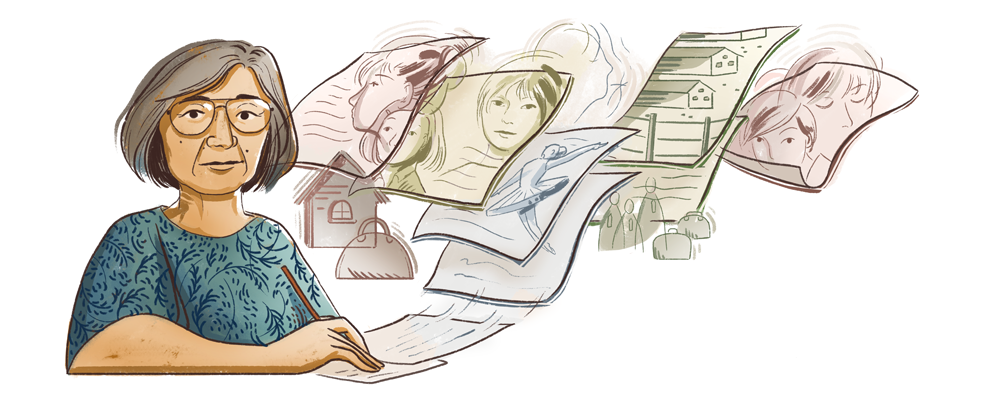Hello ladies and gents this is the Viking telling you that today we are talking about
Celebrating Hisaye Yamamoto
In honour of Asian Pacific American Heritage Month, today’s Doodle celebrates Japanese-American short story author Hisaye Yamamoto, among the first Asian Americans to receive post-war national literary recognition. Throughout an acclaimed career, Yamamoto constructed candid and incisive stories that aimed to bridge the cultural divide between first and second-generation Japanese-Americans by detailing their experiences in the wake of World War II.
Born on August 23, 1921, in Redondo Beach, California, Hisaye Yamamoto was the daughter of Japanese immigrant parents. In her teens, Yamamoto wrote articles for a daily newspaper for Japanese Californians under the pen name Napoleon. Following the outbreak of World War II and due to Executive Order 9066, Yamamoto’s family was among the over 120,000 Japanese-Americans forced by the U.S. to relocate to government prison camps (aka Japanese internment camps), where they faced violence and harsh conditions. Despite the injustices encountered daily, she kept her literary aspirations alive as a reporter and columnist for the “Poston Chronicle,” the camp newspaper.
As the dust settled from the war’s end, Yamamoto was released from the internment camp and returned to the Los Angeles area in 1945. Yamamoto soon found work as a columnist with the “Los Angeles Tribune,” a weekly Black-owned and founded newspaper that sought to diversify the voices in journalism and unify the Angelo Black community with Asian Americans.
Over the next three years gathering news for the publication, Yamamoto witnessed firsthand the widespread racism that many underrepresented groups faced. These experiences profoundly changed Yamamoto, who became a literary champion of not just the Asian American community, but for others who also endured discrimination. In 1948, Yamamoto published her first short story, “The High Heeled Shoes,” which inspired Yamamoto to leave journalism and pursue writing full-time, often exploring topics related to the intersection of gender, race, and ethnicity in her works.
The adversity she overcame at the prison camp formed the basis for much of Yamamoto’s work, such as her 1950 short story “The Legend of Miss Sasagawara.” She also remained a life-long advocate in the fight against war, racism, and violence. In 1986, Yamamoto’s storytelling won the Before Columbus Foundation’s American Book Award for Lifetime Achievement for her contributions to American multicultural literature.
Here’s to you, Hisaye Yamamoto! And as always have a chilled day from the Viking

Comments
Post a Comment